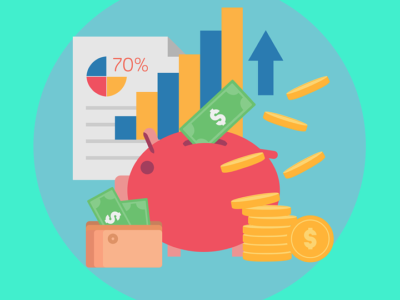Managing your finances can be a time-consuming and stressful task. From paying bills to balancing a budget, there are many responsibilities associated with keeping your finances in order. Fortunately, with the rise of financial technology and automation, managing your finances has become easier and more efficient than ever before.
Automating your finances means setting up systems that automatically handle your financial tasks, such as paying bills, saving money, and investing. This can help you save time, reduce stress, and make your financial life more organized.
Benefits of finance and investment automation.
It Saves Time
One of the biggest benefits of automating your finances is that it saves time. Instead of spending hours each week paying bills, transferring money between accounts, and managing investments, you can set up automatic payments and transfers that do the work for you. This frees up time that you can use to pursue other interests or take care of other responsibilities.
Moreover, automation eliminates the need to remember due dates, track expenses, and manually perform calculations. You don’t have to worry about missing payments, late fees, or overdrafts. Automation ensures that your finances are taken care of on time, every time.
It Helps You Stick to a Budget
Another advantage of automating your finances is that it can help you stick to a budget. Many people struggle with managing their spending and keeping track of their expenses. With automated systems, you can set up alerts for when you reach certain spending thresholds, track your expenses in real time, and even limit your spending in certain categories.
By automating your finances, you can reduce the chances of overspending, impulse buying, and making financial mistakes. You can set up automatic savings plans that allocate a certain amount of money to different accounts, such as emergency funds, retirement savings, or investment portfolios.
It Improves Your Credit Score
Your credit score is an important indicator of your financial health. It determines your ability to qualify for loans, credit cards, and other financial products. By automating your finances, you can improve your credit score by ensuring that your bills are paid on time and in full.
Late or missed payments can have a significant impact on your credit score. By setting up automatic payments, you can avoid these negative consequences and maintain a positive payment history. This can help you qualify for better interest rates, lower fees, and other benefits associated with good credit.
It Reduces Stress and Anxiety
Managing your finances can be stressful and anxiety-inducing. Keeping track of due dates, balances, and bills can be overwhelming and time-consuming. Automation can help reduce this stress by simplifying the process and giving you peace of mind.
By automating your finances, you don’t have to worry about remembering due dates or tracking your expenses. You can set up alerts and notifications that keep you informed about your financial situation. This can help you feel more in control and less anxious about your finances.
It Increases Your Savings
Automating your finances can also help you increase your savings. By setting up automatic savings plans, you can allocate a portion of your income to different accounts, such as emergency funds, retirement savings, or investment portfolios. This can help you build up a savings cushion and prepare for unexpected expenses or emergencies.
Automated savings plans can also help you save more money over time. By consistently contributing to your savings, you can take advantage of compound interest and other long-term benefits. This can help you reach your financial goals faster and with less effort.
It Provides Better Investment Opportunities
Finally, automating your finances can help you take advantage of better investment opportunities. By setting up automatic contributions to investment accounts, you can ensure that you are consistently investing in your financial future. This can help you grow your wealth over time and achieve your financial goals.
Automation can also help you take advantage of market trends and investment opportunities as they arise. You can set up alerts and notifications that inform you of changes in the market or investment options that align with your financial goals. This can help you make informed investment decisions and take advantage of opportunities that can maximize your returns.
Tips on how to use investment automation on your finances.
Set Up Automatic Bill Payments
Arrange automatic payments for your recurring bills, such as utilities, rent/mortgage, and insurance. This ensures timely payments and avoids late fees.
Automate Savings
Establish automatic transfers from your checking account to a savings or investment account. This way, a portion of your income is saved or invested without you having to remember or manually initiate the transfer.
Use Investment Automation Plans
If you have investment accounts, such as a retirement account or brokerage account, set up automatic contributions. Determine a fixed amount or percentage of your income to be automatically invested at regular intervals, such as monthly or biweekly. You can also employ dividend reinvestment programs or D.R.I.P. This is a financial tool that will help you compound your wealth. With dividend reinvestment, you can buy more shares of a stock with the dividends that are paid out.
Take Advantage of Employer Contributions
If your employer offers a retirement savings plan, such as a 401(k) with matching contributions, make sure you’re contributing enough to maximize the match. Set up automatic deductions from your paycheck to take advantage of this benefit.
Use Robo-Advisors
Consider using robo-advisors for your investment needs. These automated platforms use algorithms to manage and optimize your investment portfolio based on your goals and risk tolerance.
Use Budgeting Apps
Utilize budgeting apps or financial management tools that automatically categorize your expenses and provide insights into your spending habits. These apps can help you track your finances, set budgeting goals, and identify areas where you can save money.
Set up Alerts and Notifications
Take advantage of alerts and notifications provided by your bank or investment platforms. These can notify you of low balances, unusual activity, or changes in your investment portfolio, keeping you informed and enabling quick action when necessary.
Opt for Paperless Statements
Switch to electronic statements and documents for your bank accounts, credit cards, and investment accounts. This reduces clutter and ensures you have easy access to your financial information whenever you need it.
Use Automatic Rebalancing
If you have a diversified investment portfolio, consider setting up automatic rebalancing. This feature adjusts the allocation of your investments back to your target percentages, ensuring your portfolio remains aligned with your investment strategy.
Regularly Review and Adjust
While automation can simplify your financial life, it’s important to review your finances periodically. Assess your goals, track your progress, and make any necessary adjustments to your automated systems to ensure they continue to align with your evolving needs and objectives.
Use Automatic Debt Repayment
If you have outstanding debts, set up automatic payments to ensure you’re making timely and consistent payments. This helps you avoid late fees and penalties while steadily reducing your debt over time.
Utilize Expense Tracking Apps
Consider using expense-tracking apps that sync with your bank accounts and credit cards. These apps automatically categorize your expenses, provide spending insights, and help you identify areas where you can cut back and save.
Recurring Investment Automation
If you have specific investments you want to make regularly, automate them through direct debits or standing orders. For example, you can automatically purchase a set amount of shares in a particular stock or index fund every month.
Set Up Price Alerts
If you’re interested in specific stocks or investment opportunities, set up price alerts through online trading platforms. These alerts will notify you when the price reaches a certain level, allowing you to take advantage of favorable buying or selling opportunities.
Explore Robotic Process Automation (RPA)
For more advanced automation, consider using RPA tools and software. RPA can automate repetitive financial tasks such as data entry, report generation, and reconciliation, saving you time and minimizing errors.
Remember, automation is a helpful tool, but it’s still essential to stay engaged with your finances. Regularly monitor your accounts, review your investment performance, and seek professional advice when needed to make informed decisions.
Using the tips above you can become an automation wizard. I hope you found this advice valuable. If you did please consider signing up for our newsletter. It is quick and painless and we promise we do not spam.














Comments